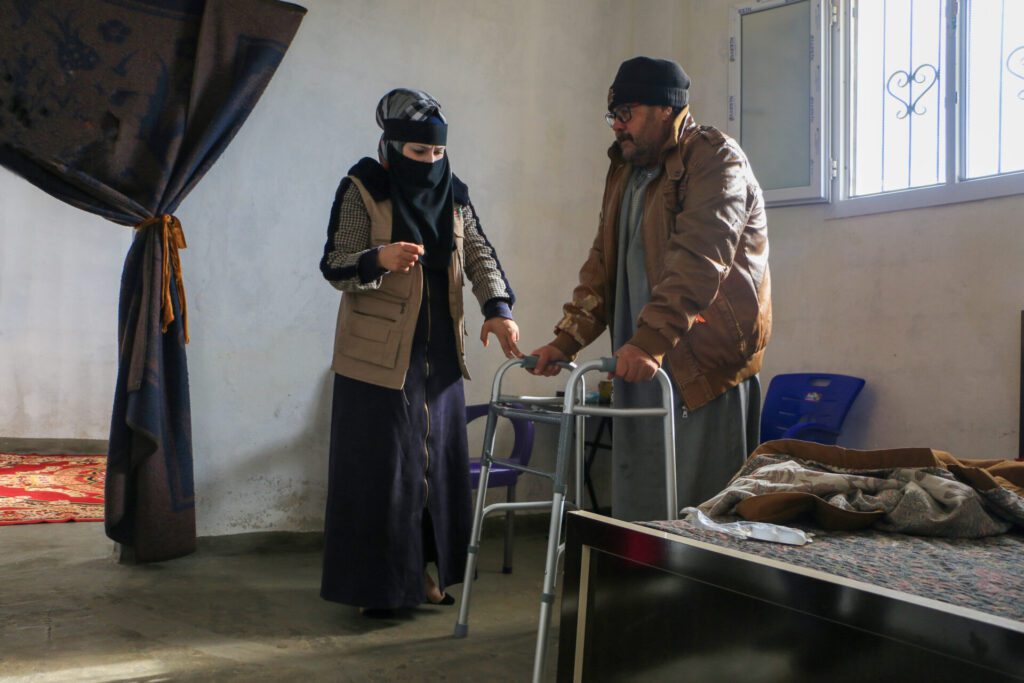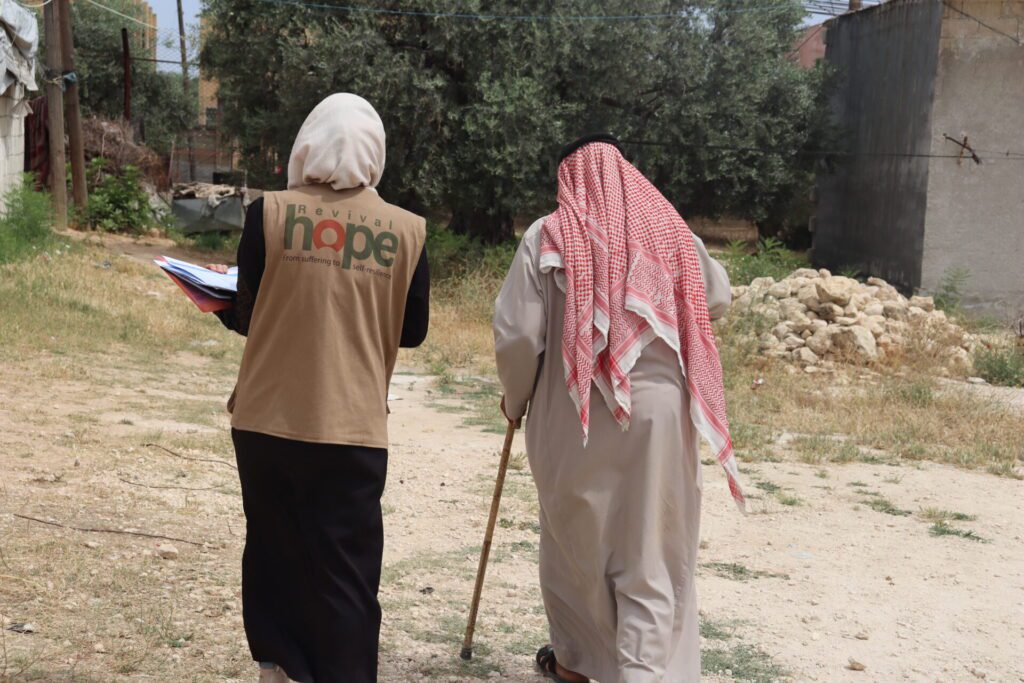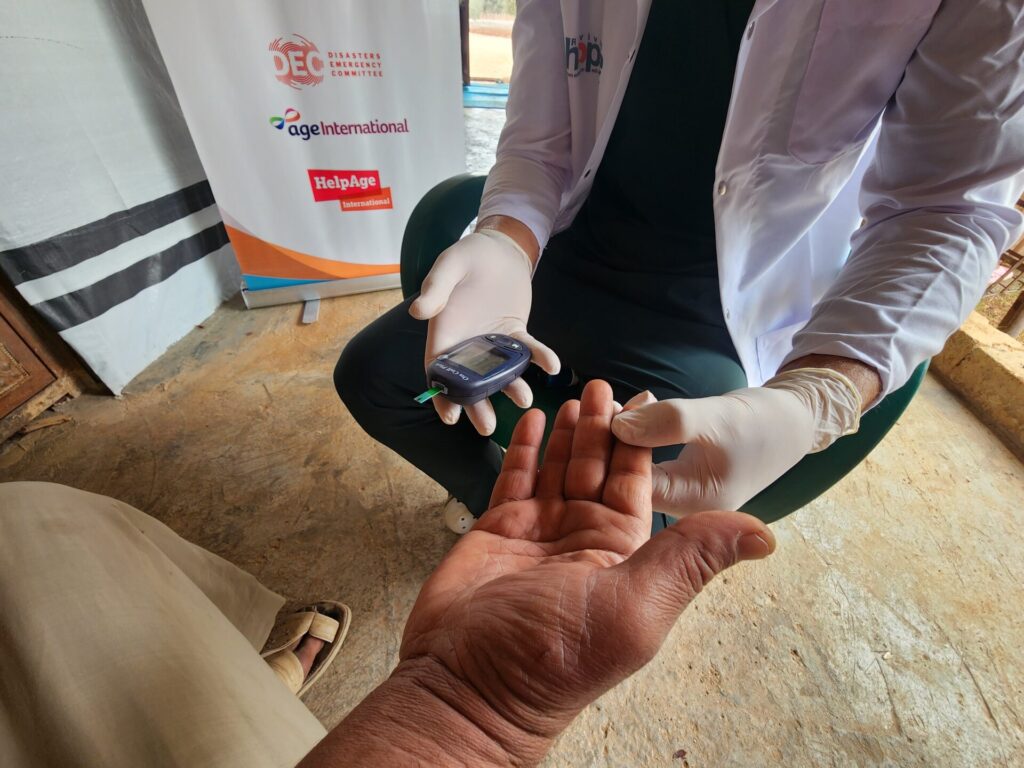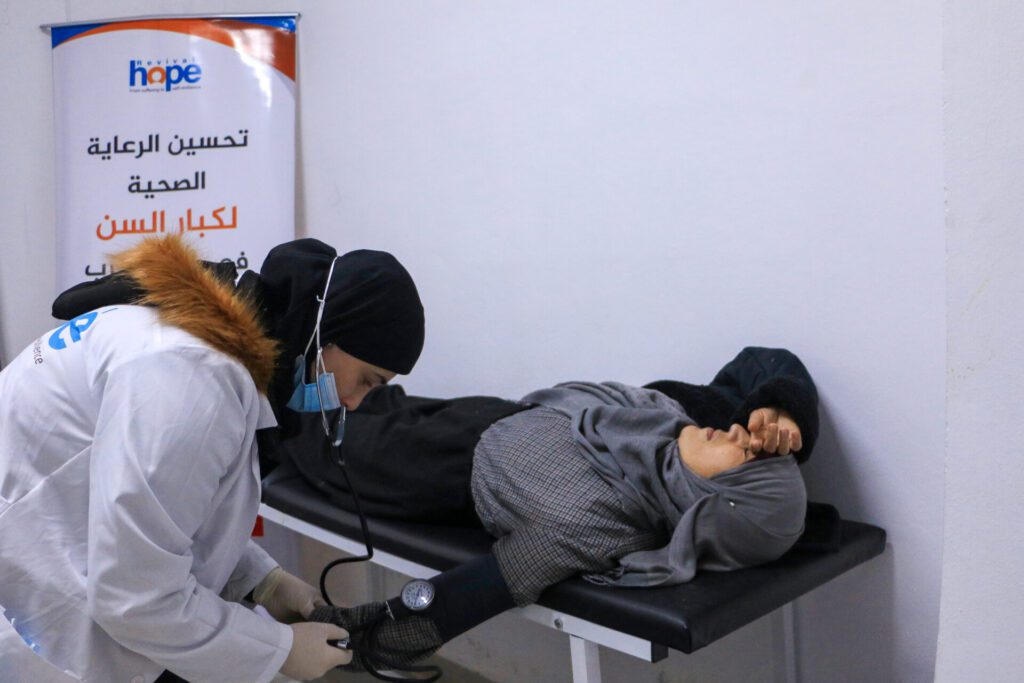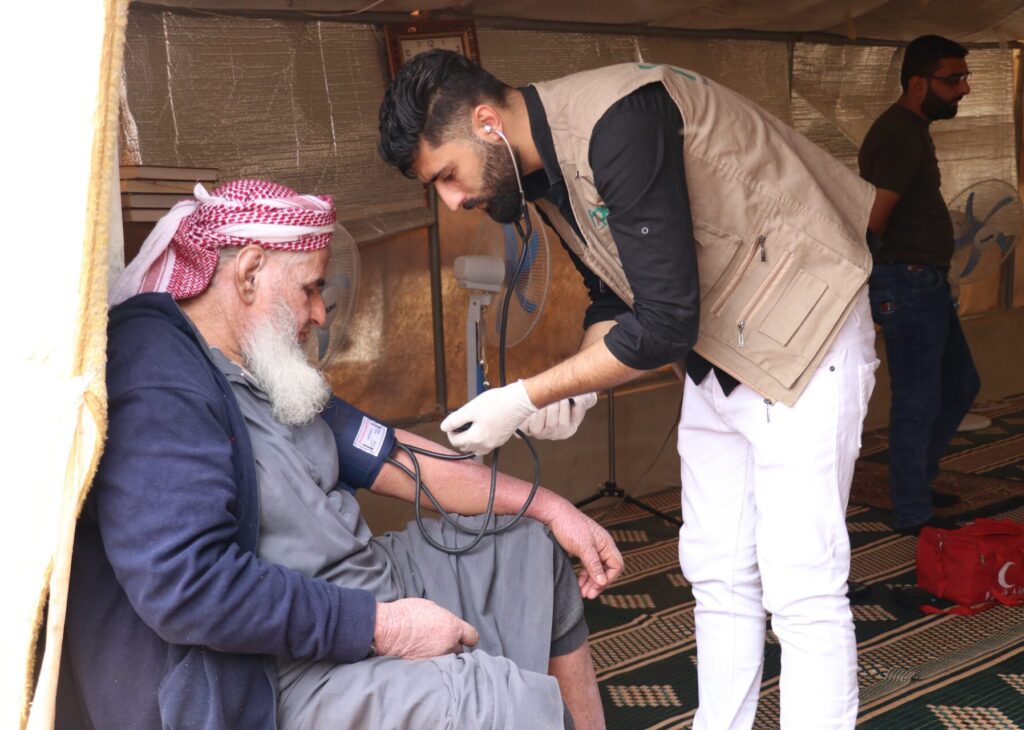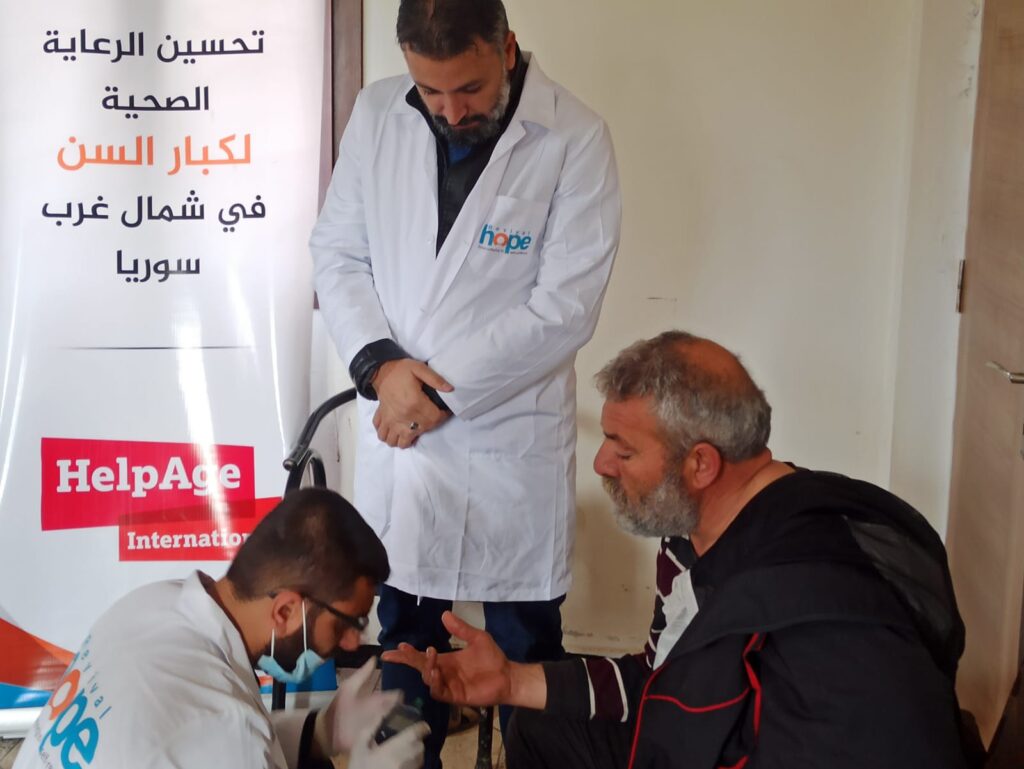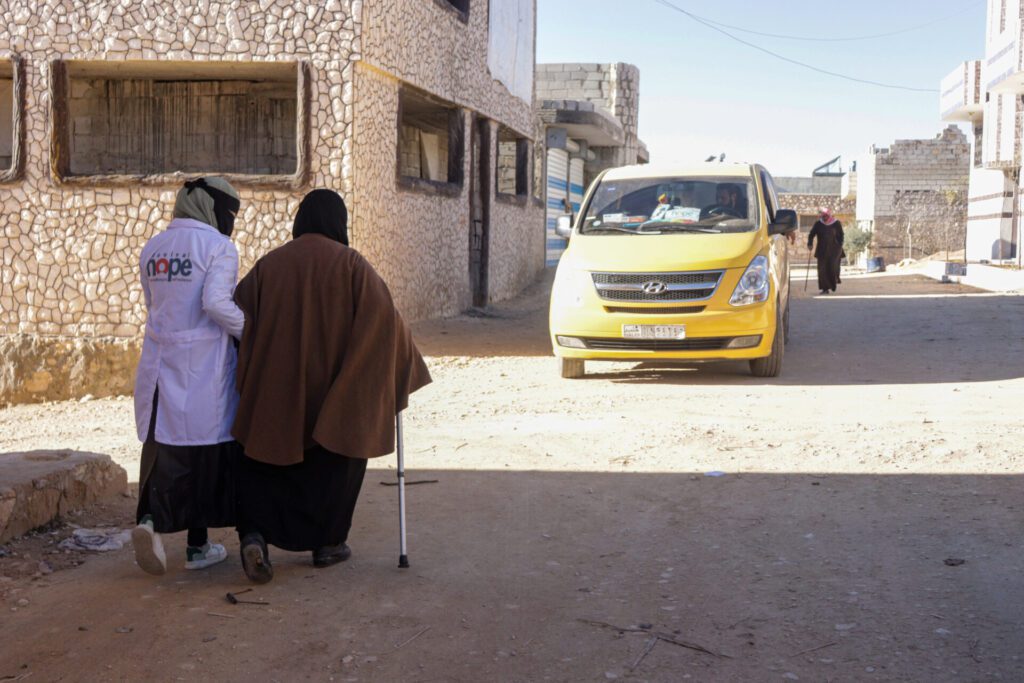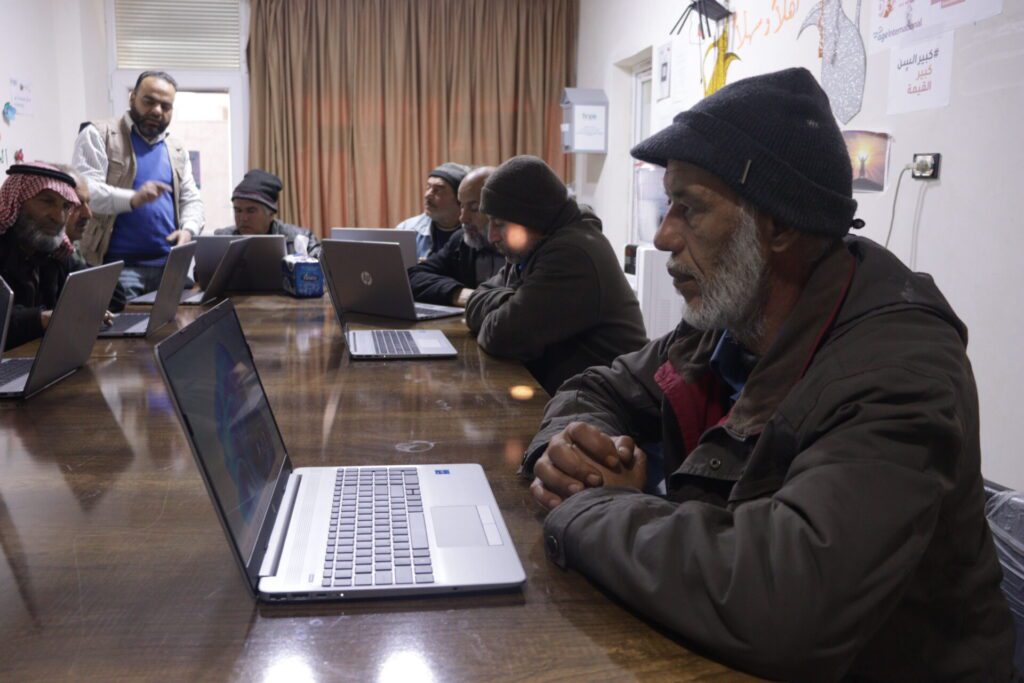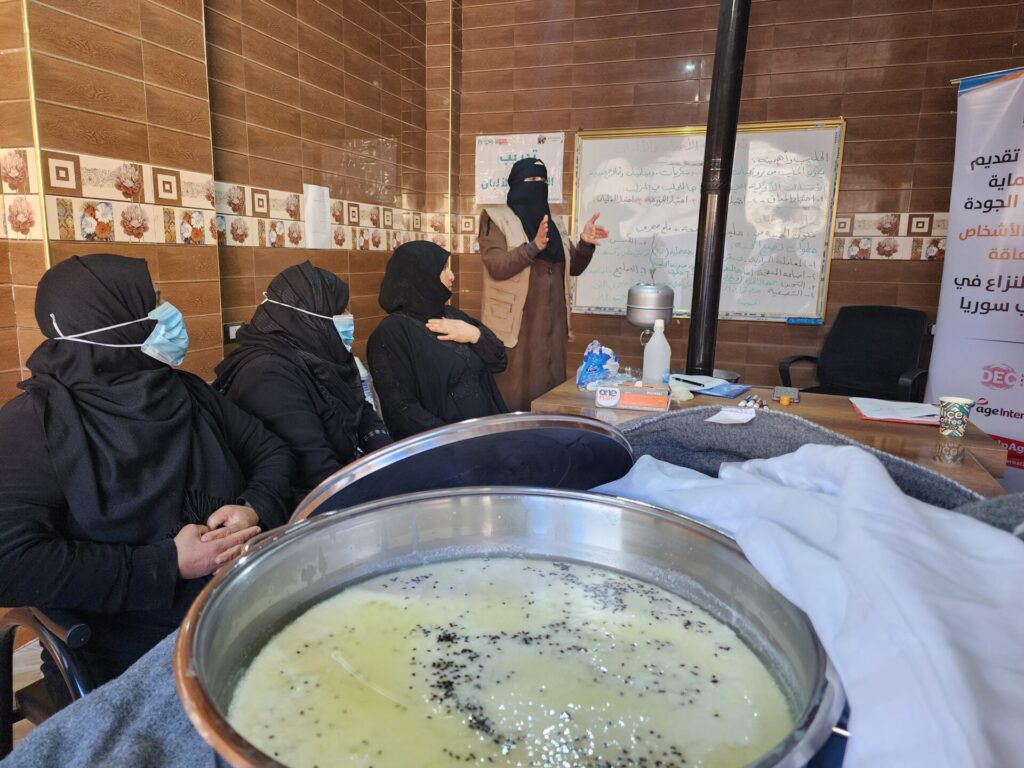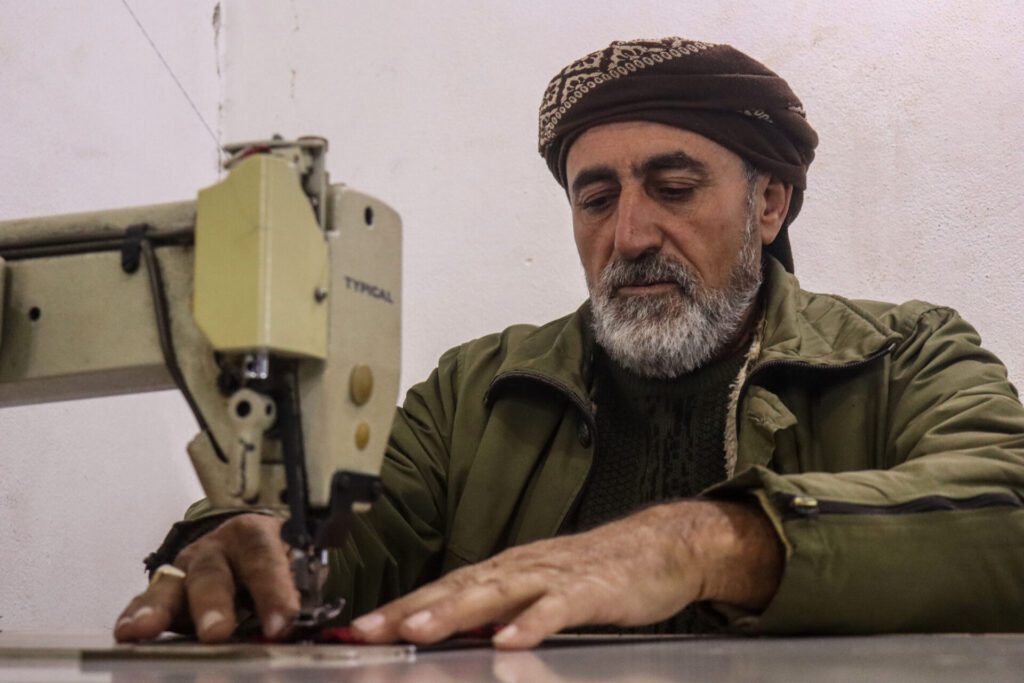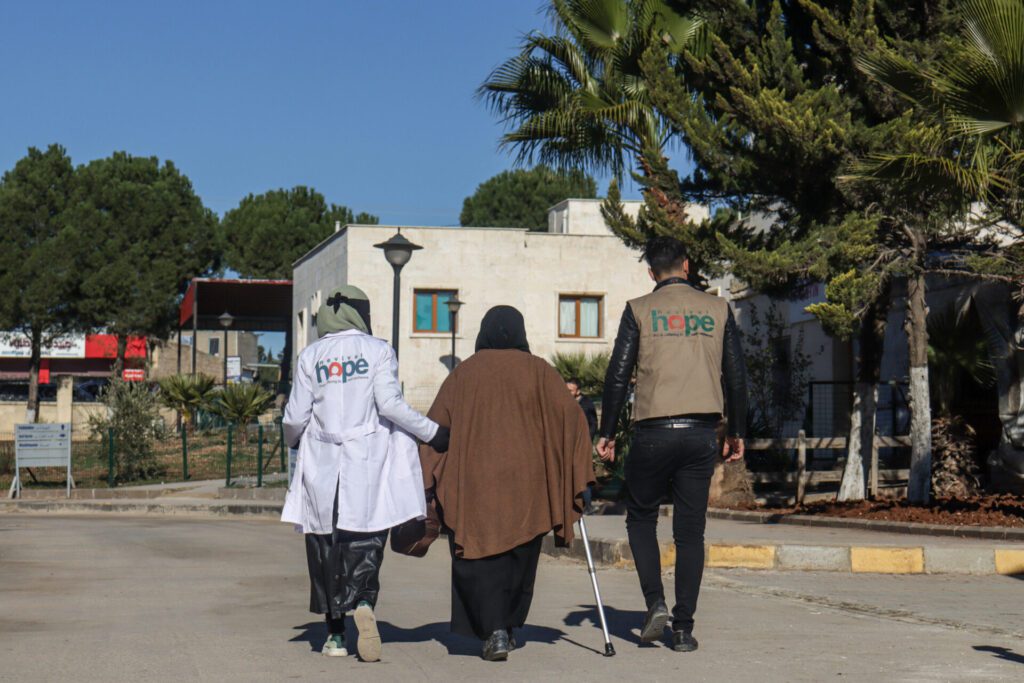One year after the devastating earthquakes in Türkiye and northwest Syria, we look back at the impact on the region’s older people and the work being done to support them and their families.
Our Impact
With our partners, we immediately launched into action after the earthquakes struck, providing urgent assistance to those impacted by the destruction, supporting older people and their families. This included the distribution of food and non-food items, as well as emergency cash assistance so that people could buy what they needed.
We helped with the building of temporary shelters and distributed items that were essential to surviving the winter cold. We also supported the delivery of primary healthcare and psychological support, especially for older people with and without disabilities.
Since February 2023, our humanitarian response has benefited more than 95,000 people in Syria and Türkiye, of which:
- 21,250 people benefited from food baskets, dignity kits, and hygiene kits.
- 51,563 benefited from one primary health center and 3 mobile clinics.
- 9,330 received mental health and psychosocial support.
- 1,000 older people received assistive devices.
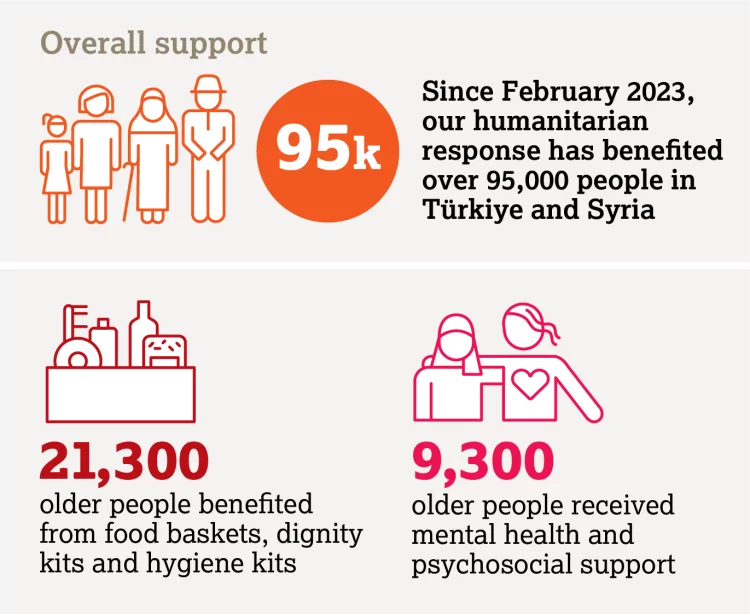
None of this could have been achieved without the support of HelpAge’s local partners—the Syrian Expatriates Medical Association (SEMA), Hope Revival Organization, and Action for Humanity—who all led on the delivery of the emergency response.
“In the aftermath of the Türkiye-Syria earthquake, we see a stark reality: an added layer of hardship for the already vulnerable population in northwest Syria, particularly older people. This earthquake has intensified existing challenges and introduced new ones, impacting the lives of 4.5 million people already grappling with the enduring effects of conflict. It’s not just an earthquake; it’s a crisis within a crisis, underscoring the urgent need for humanitarian support to mitigate the devastating aftermath and rebuild the resilience of the affected communities.”
– Basem Shaher, grant management coordinator, SEMA
Needs Assessment of Older People in Syria
Our needs assessment of older people in northwest Syria has uncovered some alarming statistics, highlighting the critical situation they are facing.
Most older people face food insecurity, water scarcity, and income instability. Many suffer from a health condition and experience loneliness and isolation.
To ensure inclusivity in responses, data disaggregated by sex, age, disability, and ethnicity must be gathered, analyzed, used, and published. Responding organizations must involve older people in developing feedback mechanisms, increase awareness of feedback channels, establish outreach services, and provide tailored support for older caregivers and their dependents. Sharing information in accessible formats, strengthening community networks, and investing in capacity-building is essential as well.
Older people are one of the groups most likely to be at risk and face disadvantages and exclusion in times of crisis. They face obstacles in accessing suitable emergency shelters, supplies, and services. Extreme weather conditions also pose additional health risks to them.
In addition, it is a well-known fact that the current humanitarian model is not equipped to meet their unique needs, as a result of which they are overlooked in the initial response.
We must make sure that rescue and relief efforts everywhere are inclusive of older people and respond to their specific needs.
HelpAge's Work in the Region
HelpAge International has been active in Syria since 2013, with operations concentrated in northwest Syria—specifically in the Idlib and Aleppo districts.
Through local partners, HelpAge has been providing access to mental health and psychosocial support, health and nutrition programs, and essential items during emergencies.

